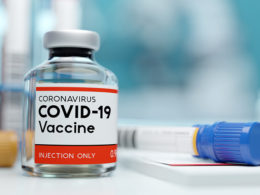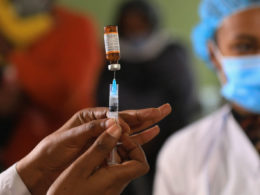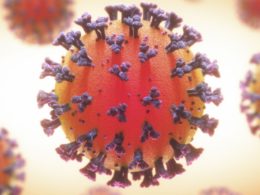SCIENTIFIC achievements and breakthroughs in medical research and practice often raise new questions, and a remarkable surgery that took place on January 7, when Maryland resident David Bennett was transplanted with a genetically modified heart from a pig, is no exception
The medical milestone has taken the world by storm and has unfortunately been misrepresented in some social media platforms, as well as some questionable news sites, with many claims circulating that pig heart transplants are already readily available, giving false hope to heart ailment patients.
The brief on the famous transplant
A 57-year-old man received a pig’s heart successfully on Saturday, at the Maryland research hospital in the United States of America.
The organ recipient is breathing on his own without life support however his new heart is being assisted by machines to pump blood, with doctors weaning him slowly from the machines.
The one-year-old pig’s heart was genetically modified and it was bred specifically for this purpose.
The surgery, performed by a team at the University of Maryland Medicine, is among the first to demonstrate the feasibility of a pig-to-human heart transplant, a field made possible by new gene-editing tools.
If proven successful, scientists hope pig organs could help alleviate shortages of donor organs.
Does this mean these surgeries will now be done on full scale?
NO.
This was a highly experimental procedure following decades of research. More work is still to be done. Although the patient survived the surgery and his body has so far not rejected the gene modified pig’s heart, the medical scientists and researchers are still monitoring the patient. His condition over the next few weeks, and months is likely to determine the next steps in this great medical milestone.
What local experts have to say
Zimbabwean health experts have joined their global colleagues in celebrating the medical milestone where a pig’s heart has been successfully transplanted to a human being, and they have described this development as a potential game-changer in the treatment of heart diseases patients in the future.
The experts have however warned that while the current breakthrough is indeed worthy of celebration, the development is only at its experimental stages where medical scientists are still looking into possible options of treating heart disease patients who need organ transplants. They said it may take years before such transplants of animal soured organs are available to the public
The local specialist doctors have described the medical milestone, as a much needed medical breakthrough but have warned that this is still in the early stages as more research is yet to go into the transplants before they are available to the public.
Specialist physician, Percy Simukai Muchawira who is a Specialist Cardiovascular and Thoracic surgeon and departmental head at the Parirenyatwa Group of Hospitals said there was a critical shortage of organ donors worldwide and the possibility of using animal organs to save human lives is.
“While it is way too early for patients to expect such surgeries to be done, the successful surgery at the Maryland hospital has put into action years of research and is showing that there is hope for the treatment of heart disease in the future.
“This is a medical milestone worth celebrating and as specialist physicians we are excited at the possibility of more treatment options for heart disease patients. This would mean that patients in need of organ donors do not wait for a donor to die so that they receive organs, but we are seeing a future where animals are bred especially for organ harvesting to be transplanted to human beings. Well, yes, that may take years and years of research, however, the fact that it has been done now and the patient is still alive is indeed a pointer to a better future with more options for our heart disease patients,” he said.
“This really brings us one step closer to solving the organ shortage crisis. There are simply not enough donor human hearts available to meet the long list of potential recipients,” he said.
Bulawayo provincial medical director Dr Maphios Siamuchembu, a general surgeon called for the government to invest in the health actor and research in order for future discoveries to be made in the country.
“This is a great development and shows just how much can be done and achieved if there are resources. We are following the developments closely and with interest as medical practitioners. While this is happening in the first world, far away from us, it remains a positive step towards a better future in the medical fraternity,” he said.
The doctors called for the correct interpretation of the developments and stressed that it was the role of the media to ensure that the public understood that this development was still at ‘highly experimental stages.
What this means for Zimbabwe
While the medical milestone has been celebrated global, it is of less significance to Zimbabwe in particular, as medical research in the country is poorly funded and in the doldrums.
Outside of medical research, medical practice at public hospitals is also in a poor state.
Heart disease patients in the country are referred to neighbouring countries for health as the last open heart surgery in Zimbabwe was conducted in October 2018. Local surgeons said they celebrate the milestone with colleagues, but had less hope of ever conducting such life-changing surgeries in the country if the funding of health institutions does not improve.
Globally, 153 863 organs were transplanted in 2019, the latest available data, a 4,8 percent increase from 2018.
According to the latest available data, 17, 5 transplants are performed every hour and 421 are done daily.
According to an American journal on medical research, pigs have long been a tantalizing source of potential transplants because their organs are so similar to humans. A hog heart at the time of slaughter, for example, is about the size of an adult human heart.
Other organs from pigs being researched for transplantation into humans include kidneys, liver and lungs.
Prior efforts at pig-to-human transplants have failed because of genetic differences that caused organ rejection or viruses that posed an infection risk.
Scientists have tackled that problem by editing away potentially harmful genes.
In the heart implanted in Bennett, three genes previously linked with organ rejection were “knocked out” of the donor pig, and six human genes linked with immune acceptance were inserted into the pig genome.
The work was funded in part with a $15.7 million research grant to evaluate Revivicor’s genetically-modified pig hearts in baboon studies.
In addition to the genetic changes to the pig heart, Bennett received an experimental anti-rejection drug made by Kiniksa Pharmaceuticals based in Lexington, Mass.









